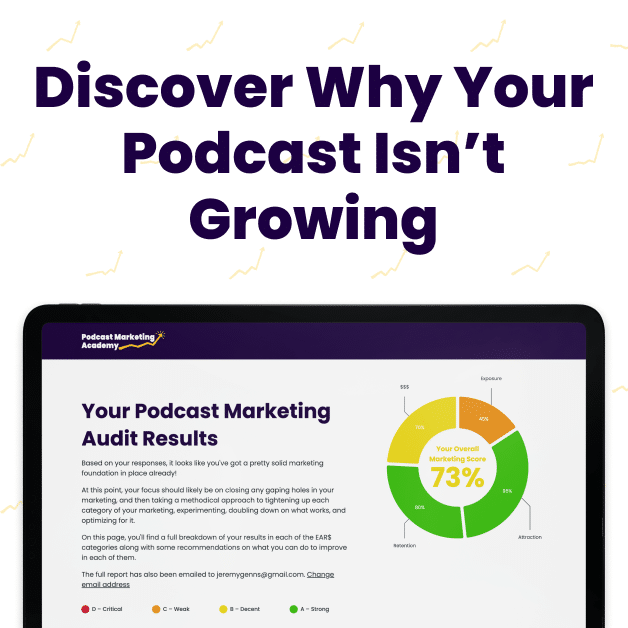Think back to the most pivotal moments in your life.
The type that left a clear before/after demarcation between where your life had been going… and the direction it then branched off to.
A handful of moments that immediately come to mind for me are:
- The moment in 9th grade home economics class when my friend Tyler introduced me to Metallica… which eventually got me into playing & writing music and the world of audio.
- The moment I realized my audio engineering education could be applied to podcasting… which kickstarted my business and enabled me to travel full-time for 8 years.
- The moment Kelly and I first entertained the question of moving to Europe instead of Canada or the US… which resulted in us settling in Barcelona.
- The moment (Jan 1, 2020) I decided to start a daily writing habit… which transformed my career in too many ways to count.
- The moment I decided to move on from the podcast agency I’d been building for 5 years to focus full-time on Podcast Marketing Academy… which has led to the most fulfilling work of my career yet.
We all have these moments, many centering on situations where we experienced a breakthrough that led to personal or professional growth.
And at least for me, when I think back, a pattern becomes immediately clear:
None of my breakthroughs were the result of consuming more educational information.
Rather, they were the result of a shift in perspective that led me to approach a problem or situation from a new angle.
The source of that shift?
Surprisingly often, it was a creator or marketer making a compelling argument through their content for a specific alternative approach or worldview related to the problem I was experiencing.
This isn’t to say education didn’t play a role in these shifts.
Safe to say, I’m in the 99th percentile of content consumers on the planet.
One year where I listened to 50 hours/week of educational podcasts and audiobooks (at 2x speed no less). I’ve taken dozens upon dozens of courses and workshops.
Education is essential.
But here’s the thing.
Despite spending dozens if not hundreds of hours with each of them, the creators behind that educational content have entirely faded from memory.
In most cases, I never spent any money with them.
And I rarely recommended them or their work.
The creators who changed my worldview, on the other hand…
I’ve spent significantly less time with their content.
But I’ve easily spent tens of thousands of dollars with them, and continue to recommend them on a weekly basis.
If the purpose of your show is content marketing for your business, this is an essential lesson to understand.
The job of your content is not to educate your audience with tactical tips and tricks.
The job of your content is to convince them that the way they’re approaching the problem won’t get them where they’re looking to go, and then offer them an alternative approach that will.
Like a good lawyer, your job is to take all the facts and information they already know and weave them together in a way that reframes the problem and solution in a way that makes sense both logically and emotionally.
Of course, to make this type of compelling argument, you need a few basic components.
- A deep understanding of the desires, surface challenges, and root problems your audience faces.
- An awareness of the alternative solutions and approaches they’re already trying… and why they aren’t effective.
- A cohesive and prescriptive point of view and philosophy about how your people should approach the problem that diverges from the standard rhetoric in your niche.
Ultimately, it’s your point of view that draws people in and makes them choose you, your podcast, and your offers over the infinite supply of competition.
Your point of view moves you from one of many to one of one.
Which means it should be immediately, unavoidably obvious to anyone who scans your show listing or listens to more than one episode.
Your listeners need information. They need education.
But sooner or later, all the tips, tricks, and hacks will be freely available. In many spaces, they already are.
Which puts any show built around sharing them at risk of being a generic, forgettable commodity.
In a world of information overload, the most helpful thing you can do—for your audience and your business—is not to add to the noise, but to make sense of it.
Define your point of view.
Structure your argument.
And use your show to prove, amplify, and reinforce it.
If you want to change your listeners’ minds—and lives—this is the way.





